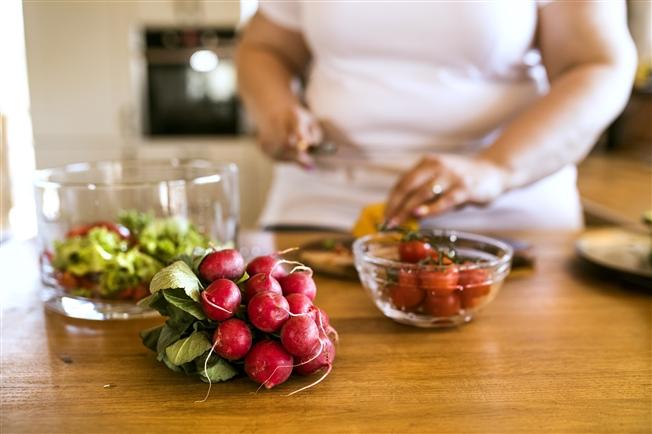Using food to fight inflammation

Chances are, you’ve heard reference to inflammation at some point, maybe from your care provider or even in your own research about health and wellness. But unless you’ve been affected by inflammation, you might not know what exactly it means and how it could affect you.
What is inflammation?
We’ve all seen inflammation at work, but probably just haven’t realized it. Consider what happens to your body when you scrape your knee or sprain your wrist: The injured area immediately turns red, and it might be painful, swollen, immobile or warm to touch. This is a result of inflammation, a completely natural process that deploys white blood cells to the injured area to protect the body from bacteria or infection and repairs damaged tissue.
Inflammation only lasts for a few hours or days (depending on the severity of your injury) and then the affected area returns to normal. But, in some cases, inflammation can linger. This is called chronic inflammation—when inflammation doesn’t go away or when your immune system reacts to injury or trauma, even when there is none.
When this happens, white blood cells attack healthy tissues and organs instead of healing them. This process has been linked to several health issues, including autoimmune diseases, diabetes, cancer, heart disease and more.
Researchers and clinicians still aren’t sure what exactly causes the immune system to misfire and begin this process. They do, however, know what factors can affect your risk for chronic inflammation.
How your diet affects inflammation
There are several genetic, lifestyle and environmental factors that can make you more susceptible to experience chronic inflammation, but one major factor is your diet. “The way that we nourish our bodies and what we consume every day has a direct impact on just about everything that happens inside our bodies,” says Adam B. Kaufman, MD, a gastroenterologist at Lankenau Medical Center, part of Main Line Health. “Many people don’t realize how what they eat every day can contribute to inflammation until it becomes a chronic health issue.”
The same foods that cause inflammation in your body are the ones you’ve probably been told to eliminate or ration before, like red and processed meats, refined carbohydrates, fried foods and saturated fats. In moderation, these foods won’t cause any major problems for your digestive system. Too much of them can lead to weight gain, inflammation and—in turn—chronic disease.
So what should you eat to keep chronic inflammation at bay? You probably won’t be surprised by the list:
- Leafy greens
- Olive oil
- Nuts
- Whole grains
- Beans
- Produce – broccoli, berries, avocado and tomatoes are all good anti-inflammatory foods
- Fatty fish like salmon and mackerel
- Spices, namely turmeric, ginger and garlic
“These are the same foods that people have been encouraged to eat for generations. They’re the cornerstone of a healthy diet: lots of fruits and veggies, healthy fats and lean meats,” says Dr. Kaufman.
Adopting an anti-inflammatory diet
To reduce your risk of chronic inflammation, start by incorporating some of these foods into your daily meals. Instead of chili with ground beef, try ground turkey or a vegetarian chili recipe. Try avocado spread on top of your toast instead of butter or peanut butter. Little swaps like these can make all the difference.
While diet is an important factor in inflammation, it’s not the only one. If you’re experiencing symptoms like depression, general body pain, fatigue or gastrointestinal issues like constipation, diarrhea or irritable bowel disease, talk to your doctor about how a change in diet might improve these symptoms. In some cases, additional treatment may be necessary.
To learn more about an anti-inflammatory diet (or just to ask the nutrition questions you’ve always wondered), join Dr. Kaufman at Whole Foods Market in Wynnewood for ‘Shop with the Doc’ on Thursday, February 28. You’ll have the chance to tour the store with Dr. Kaufman and get advice on how to adopt a healthy diet.
 Content you want, delivered to your inbox
Content you want, delivered to your inbox
Want to get the latest health and wellness articles delivered right to your inbox?
Subscribe to the Well Ahead Newsletter.
